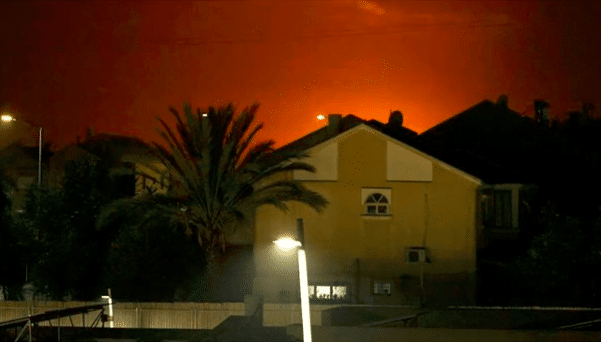Sari Beth Rosenberg was teaching a high school history class in New York City recently when a student interrupted her with a question: “Are you Team Israel or Team Palestinian?”
Rosenberg had just started her lesson on the French and Indian War when the question came up.
As a public-school teacher for more than two decades, Rosenberg has talked with her students about many controversial topics, including gun violence, the Ukraine-Russia war and the January 6 insurrection.
But the current war between Israel and Hamas is by far the most divisive topic she’s had to address as an educator, she says.
Rosenberg, who is Jewish, feared that getting into a conversation on the complexities of the conflict could alienate some of her students with ties to the Middle East. So she tried to turn the question into a learning experience.
“I told them I’m ‘Team Humanity,’” she says. She told her students that she thought both the deadly Hamas terror attacks in Israel and Israel’s ongoing bombing of Gaza are horrific.
Then she asked them what they knew or thought about what’s happening.
“This one called for a different approach, one that aligns with the way I want my classroom to be, which is fair for everyone, where no one feels like there’s an agenda or bias,” she says. “Because I have kids who wear hijabs; I have Jewish students; I have kids who don’t know anything about it.”
A California teacher says the conflict has taken an emotional toll on her and her students
Rosenberg’s concern mirrors a struggle facing educators across the United States as they try to navigate conversations both in and out of the classroom about a polarizing international conflict.
Many Jewish people have called for stronger condemnation after Hamas militants attacked a music festival and raided Israeli towns near Gaza, killing and abducting civilians and igniting the region’s latest war. Other groups have taken to the streets in the US and elsewhere to protest decades of suffering by Palestinians in the crowded Gaza Strip.
Away from the protests, teachers in US schools – especially those with ties to the region – are quietly facing their own challenges.
A Palestinian sixth-grade teacher in Alameda County, California, says she’s struggled to answer her students’ questions in a way that gives them a clear picture of what’s happening in the region. She asked CNN not to use her name out of fear of backlash for discussing such a divisive issue.
Her students know about her Palestinian heritage and noticed that she’s appeared distracted since the war started, she says.
“They could see how badly it affected me. And every morning I’d come in, they’d ask, ‘Is there any good news, anything happening? Are they stopping this war?’”
This week a student asked her how tensions between Israelis and Palestinians started, so she offered some historical context. She also read aloud to her students from a children’s book, “Baba, What Does My Name Mean?” by Palestinian American author Rifk Ebeid, which details the journey of a young Palestinian refugee who turns to her father for answers about her cultural heritage.
The teacher says the past few weeks have been emotionally tough on her. It’s been especially disheartening to see statements from school districts denouncing Hamas’ attacks on Israel with no mention of the suffering of Palestinians, she says.
“What about us Palestinians? It’s like they don’t even see us … they don’t even see us as human,” she says. “It’s been super hard going to work and trying to put on a fake face and trying to get through my lessons, trying to get through my day. Last week I went home early. I couldn’t do it anymore.”
Her teaching job that has been her passion for three years, she says, but the Israel-Hamas conflict has taken a toll.
“I’m not as enthusiastic as I used to be, which causes my students to not be as enthusiastic,” she says.
A teacher in Georgia says she’s asking students to discuss the war with their parents
CNN talked to four other teachers who also did not want to be named. They said they’ve avoided responding to questions about the war in class out of concern they may have students connected to both sides. They also fear students could record their comments and post them on social media, opening them to misinterpretation and threats.
One middle school teacher in an Atlanta suburb told CNN it’s been difficult to talk about the conflict with young kids. Some sixth-graders and seventh-graders have asked her what Hamas is and appeared confused when she explained it’s both a militant and political organization governing Gaza.
The teacher says she avoids talking about controversial subjects with her students and urges them to instead discuss the issues with their parents.
But she worries about the effect of the Israel-Hamas conflict and the Russia-Ukraine war on her young students.
“They are asking if we’re headed for World War III,” she says. “Between the pandemic and the threats of war, I really feel for these young kids. It’s tough.”
View the full article and supplemental videos at CNN.

